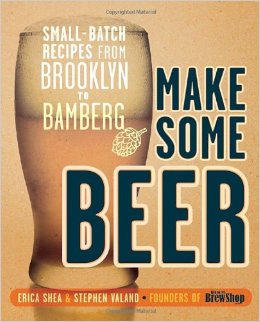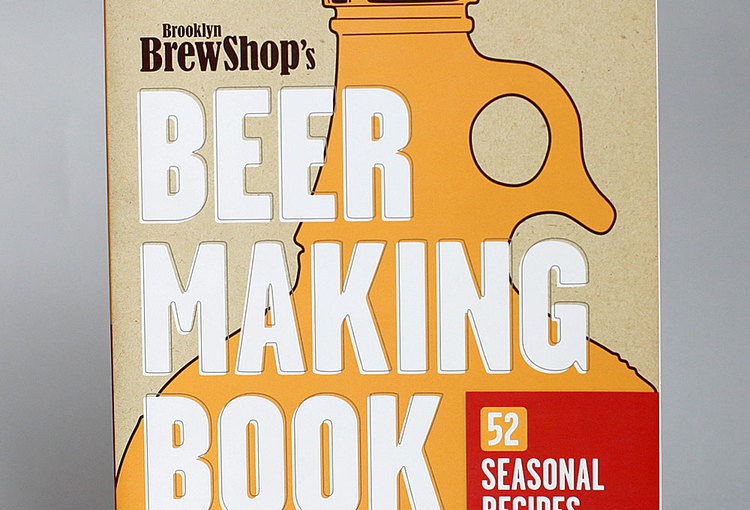The trick with the Braumeister is that you don’t brew like traditional homebrewers, with pots, coolboxes, mash calculations and so on
All you need is 23L of mash water and then top to 24L before boiling.
As simple as that for all beers, and you end up with better beers than ever before
You no longer need to worry about mash calculations, the Braumeister does it for you
The pump and mash circulation ensure an optimal efficiency, around 80%
In terms of mash schedule, just like with traditional brewing, a 60 minutes single infusion at 152°F (67°C), followed by a 5 minutes mash out at 170°F (77°C) will do the job perfectly for most beers
More about mash steps further down
Finally, boil for 60 minutes for most beers, unless specifically required by hop additions in a recipe, as it makes virtually no difference to boil for 90 minutes
The Braumeister allows to brew any beer without exception, so, feel free to recycle any recipe but don’t forget to convert the amounts for the size of your batch
Recipe
Here is a recipe for 5 Gal (19L) of a fantastic American Pale Ale with very enjoyable Citra hop flavors
5 Gal (19L) recipes mean 5 Gal (19L) in the bottles
For homebrewers who don’t own a Braumeister, this means:
- 6.5 Gal (24.5L) pre-boil volume
- 5.8 Gal (22L) in the kettle after boil + chill
- 5.4 Gal (20.5L) in the fermenter, that’s called “Batch size”
- 5 Gal (19L) in the bottles
With the Braumeister, you don’t need to worry about those, just make sure to have 24.5L pre-boil volume (or 25.5L if you boil for 90′) and you will end up with 5.5 Gal (20.5L) in the fermenter and 5 Gal (19L) in the bottles
Malt
11.75lb (5.33kg) 2-row/Pilsner (2°L, EBC 4)
1.13lb (500g) Munich Malt (8°L, EBC 20)
0.5lb (227g) Carafoam/Carapils (2°L EBC 4)
0.5lb (227g) Caramel/Crystal Malt (45°L, EBC 120)
0.5lb (227g) Melanoidin (15.3°L, EBC 40)
If you don’t feel like buying 5 different grains, just go with 11.75lb (5.33kg) of 2-row/Pilsner + 2.63lb (1.2kg) of Munich malt (8°L EBC 20)
If you are into organic brewing, Melanoidin is nearly impossible to find, so, feel free to substitute it with either Munich 8°L (EBC 20) if you want a lighter beer, or Caramel/Crystal/Munich 45°L (EBC 120) for a darker one
Hops
8.75oz (246g) Citra
Yeast
1 pack S-04 (avoid US-05 for this beer)
Misc.
Caps
55 bottles
Sanitizer
60 minutes single infusion mash at 152°F (67°C)
5 minutes mash out at 170°F (77°C)
Sparge. More about sparging with the Braumeister
0.75oz (21g) Citra “First Wort Hop” (= added after sparging)
60 minutes boil
1.25oz (35g) Citra 15′
1.25oz (35g) Citra 10′
1.25oz (35g) Citra 5′
1.25oz (35g) Citra 1′
Cool wort down to pitching temperature 70°F (21°C) with an immersion wort chiller
Sanitize fermenter, transfer wort with as much splashing as possible for better oxygenation, pitch yeast without bothering about rehydrating it
Use an aerator for 10 minutes if any
Ferment for 8 days at 64°F (18°C) and dry hop with 3oz (85g) of Citra
Ferment for another 6 days
Prim with 3.77oz (107g) table sugar
Enjoy after 2-3 weeks
Mash steps
With the Braumeister, you can go ahead with a very standard mash schedule: 30 minutes beta step at 145°F (63°C), followed by a 30 minutes alpha step at 158°F (70°C) and 10 minutes mash out at 170°F (77°C), which will give great results for most beers
You can also try John Palmer’s 3 steps schedule: 30 minutes at 104°F (40°C), 30 minutes at 140°F (60°C) and 30 minutes at 158°F (70°C) + 10 minutes mash out at 170°F (77°C) and play between the two last steps for a maltier or lighter beer: 20 minutes + 40 minutes gives a maltier beer, 40 minutes + 20 minutes gives a lighter and more alcoholic beer
Trappist beers are typically brewed with 30 minutes at 135°F (57°C), 30 minutes at 145°F (63°C), 30 minutes at 165°F (74°C) and 10 minutes mash out at 172°F (77°C)
Hefe (wheat beers) will enjoy 20 minutes at 111°F (44°C), 20 minutes at 126°F (52°C), 35 minutes at 145°F (63°C), 35 minutes at 163°F (73°C) and 10 minutes mash out at 172°F (77°C)
How to increase the body
Because of its high mash efficiency, the Braumeister tends to create thinner, drier and more alcoholic beers
If you prefer maltier beers with more body, you can play with the following factors
- Use slightly less mash water, 22L instead of 23L
- Reduce the duration of the low temperature mash step (140°F, 63°C), for example 20 minutes, and increase the length of the high temperature step (158°F, 70°C), for example 40 minutes
- Allow a couple extra weeks for bottle conditioning before tasting your beers
How to scale a recipe up to 25L
You will find detailed information on how to brew more than 20L in the FAQ
Other resources
Brooklyn Brew Shop
If you like recipes that are the result of a European and North-American mix and match with fantastic results, these two books are priceless


Every beer I brewed from them turned phenomenal
Malterie du Château
The World’s best malt house has also some superb recipes
Candi Syrup
This site also has a selection of fantastic recipes that you can download in PDF
Beer&Brewing
That’s another splendid selection of recipes
Brewer’s Friend
For countless recipes, this is your place of choice and you can also create your own
Their online tools are also very complete and easy to use if you don’t feel like buying BeerSmith

Thank you very helpful site 🙂 I have a 10L BM, how to I scale the recipes down please?
Hi,
Your best bet is to use the Scale recipe function in BeerSmith
If you don’t feel like paying for the program, just divide everything by 1.9 and you should be fine (that’s because most recipes are calculated for 19L)
Hi, thanks so much for this discussion and the links to salient issues. I have just got my 20L Braumeister after years of working with my cobbled together three vessel system and this is JUST what I was looking for and could not find. BM sent me a 2014 booklet (which is pretty crappy) for my 2017 BM. Anyhow, you make the whole process straightforward… Why BM could not do that I have no idea. So many thanks again.
Cheers,
Ian
I couldn’t agree more with you mate. I am used to my 3 vessel system and just got my BM 20L. The manual is pretty much rubbish and I have burned brain rubber trying to find simple instructions like (finally) these! Why indeed do BM not give you concise instructions like these right off!?
hi, i have brewed these recipe but i haved achive onli 60% of efficency.
I have used all the instruction you have write but i can’t understand the problem.
can you help me?
Hi,
Indeed, efficiency is very variable. You can try to mill your grain thinner and/or double mill it as there’s no real risk of a stuck sparge with a Braumeister. Also, make sure the pH of your wort 15 minutes into the mash is around 5.2-5.4 and adjust your water next times. Don’t forget to mash-out at 78°C (170F) for 5 minutes and sparge with about 3L. Altogether, I generally get around 70%.
Hi.
I have just purchased a 50L BM and looking for an easy/tasty recipe to begin my production. Would you be so kind helping me to adapt or convert the volumes from this recipe to a 50L batch, please? Or guide me in some sort of tool to do that. It will be appreciated!!! I found this site so interesting. Cheers from Uruguay.
Hola Claudio!
The best beers to brew at first are IPA, because they are loaded with hops, which allows to partly hide beginner’s mistakes.
Plus, IPA is the favorite style of a majority of homebrewers and people alike.
You can try the recipe below, I converted the amounts for 50L.
It’s my most reliable so far.
Use it as a base and adjust according to the results.
14kg Pilsner
450g CaraMünich III EBC 160
300g Melanoidin
Mash at 66°C for 50 minutes
Mash-out at 77°C for 5 minutes
Boil for 60 minutes (I personally set my Braumeister to 99°C)
10ml Liquid hop extract at boil start
75g Amarillo 20 minutes before end of boil
75g Centennial 20 minutes before end of boil
115g Simcoe at flameout
75g Amarillo at flameout
75g Centennial at flameout
3 packs US-05 yeast (no need to rehydrate it)
Dry hopping 5 days before bottling (= after 9 days in the fermenter)
75g Amarillo
75g Centennial
75g Simcoe
250g Sugar for priming
By the way, brewing your first beers by 50L batches is maybe not the best idea; having to dump 150 bottles of a failed beer sucks both in terms of cost and work.
I would strongly suggest you brew at least your 3 (if not 10) first batches in 5L BIAB as explained on my other website.
If you want to stick to your Braumeister, there are short pipes that allow you to brew 25L in your 50L Braumeister.
Even the most advanced homebrewers brew new recipes by 10L; 50L is really for proven recipes you plan to sell.
To convert recipes for 50L, you can either use the Scale recipe feature in BeerSmith or Brewer’s Friend tool, which is also very reliable.
Hope that helps!
Have fun!
John
Hola John,
Thank you so much for your kind reply. Very helpful!
To be honest, I was not aware of that short pipe you have mentioned. I was actually thinking or trying to figure out how to brew a smaller batch. Once again, thanks for your advice on the recipe and the initial batch volume.
Keep in touch!
Best regards,
Claudio
Hi!
One question. What is the OG and FG for this recipe?
Hi,
With an efficiency of 70%, you can expect:
FG 1.068
OG 1.019
Of course, this will slightly vary based on your equipment.